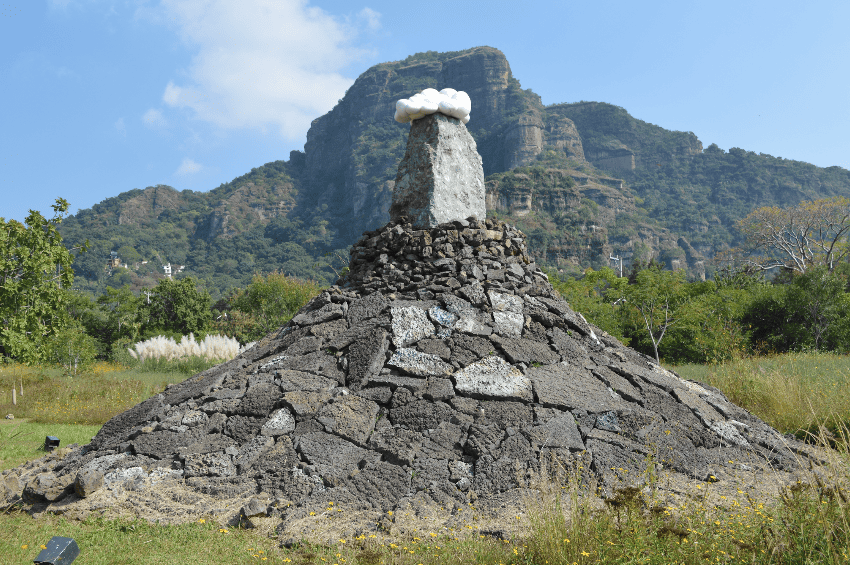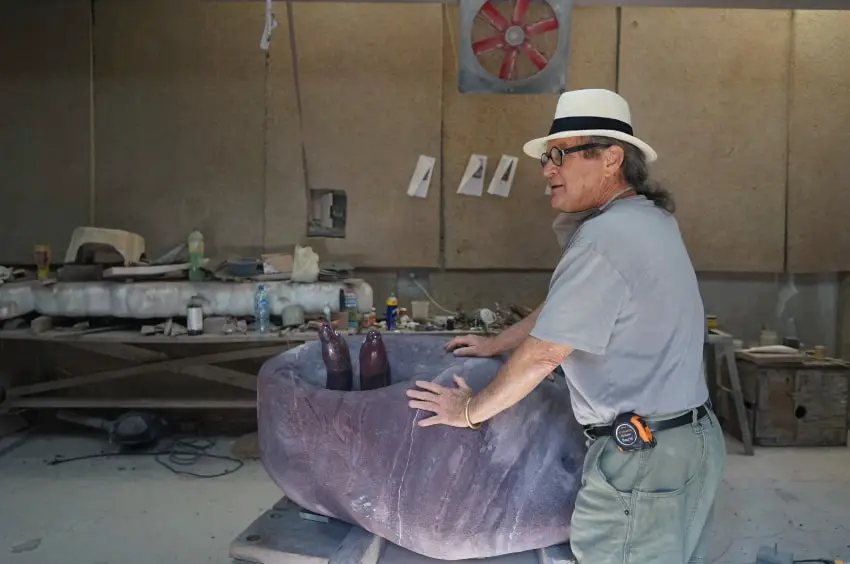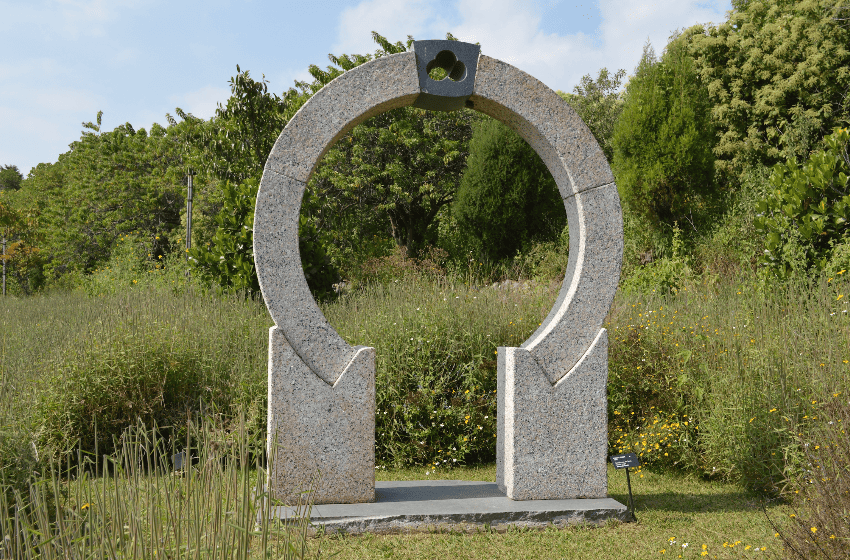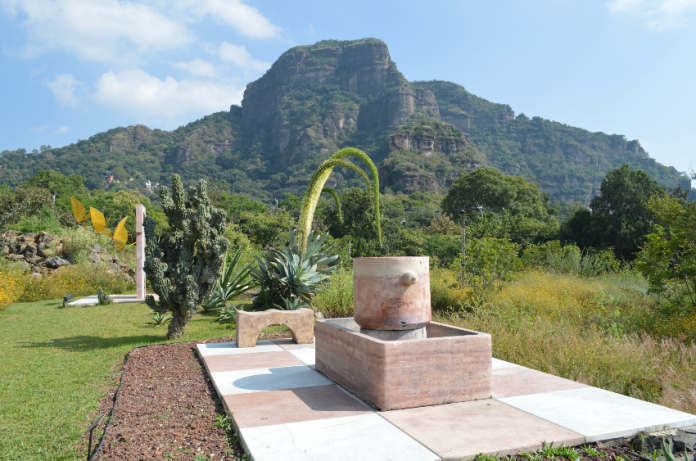Eduardo Olbés began his path to becoming a successful sculptor in his native Philippines. In his youth, he worked as an apprentice to a cabinet maker in Manila, then found his way to Godard University in Vermont, where he studied wood carving.
Life took Olbés to Mexico, where he developed his true passion – stone – preferring to call himself a pedrero (stone carver) rather than a sculptor. Upon arriving in the Pueblo Mágico of Tepoztlán in 1975 at age 24, he knew he had found the place to live and work the rest of his life. For over 40 years, he has produced works from his La Iguana de Oriente (Eastern Iguana) workshop, exhibiting in Mexico City, Manila, Los Angeles, New York and Barcelona.

Olbés’ work is influenced by his origin and heritage but more so by the natural beauty of Tepotzlán’s mountains in northern Morelos.
About a decade ago, Olbés decided to pay back the area so generous to him by establishing a sculpture park: Dilao.
In 2012, he found land “dripping with beauty,” the artist says, under the watchful grave of Chalchitepetl (Treasure Hill) at the entrance to Tepoztlán coming in from Mexico City. Dilao is from his native Tagalog and means “yellow,” referring to the wildflowers that carpet the site’s five hectares. He quickly began work reforesting much of it, likely saving the land from residential development.
Dilao officially opened in November 2019, at the height of the wildflower season, featuring 80 works by Olbés himself and a select number of other artists whose work he admires and fits with the garden’s mission.

However, not all of the garden’s artworks follow the same figurative aesthetics of Olbés. For example, Julio Martínez Barnetche’s work is more abstract and even didactic. Federico Silva’s work in metal tends to be geometric. Valentina Glez. Wohlers creates a mix of classical and whimsy furniture, and multidisciplinary artist Ivan Puig is regarded for his installation work.
Olbés says that in the past, many sculptors’ work was intertwined with architecture, which formed the context. Much modern architecture leaves classical sculpture behind, so Olbés uses Dilao to show how the outdoors can provide the setting for three-dimensional art. “Dilao is a bridge between nature and art. It’s like a symbiotic relationship;” The plants and landscape contextualize the work, Olbés says. Much of the property allows wildflowers and grasses to grow exuberantly, cut only during the dry season for safety concerns. At the most intimate level, most sculptures are framed by carefully placed plants that create mini-sanctuaries, inviting visitors to focus on the piece.
There is no set path to follow in Dilao; in fact, part of the charm is to happen upon a sculpture as you wander. Not only do you get to view the pieces from however many angles you wish, but you are also free to touch them, despite the fact that many are made of semi-precious stones such as jadeite and onyx.
Dilao is a private and independent initiative that relies on visitors and events to survive. In addition to the sculpture garden, it has an impressive outdoor pavilion with marble floors and tropical hardwood trunks to hold up the roof. A bar and restaurant called Las Nubes (The Clouds) has been added recently, and work on a new parking lot is set to begin.

The site has hosted homages to Mexican artists, musical events, dance recitals, weddings and more. Still, Olbés is particularly interested in getting the general public into the site on Tepoztlan’s busy weekends to truly appreciate what the garden offers. Only a couple hundred visitors every weekend offset maintenance costs.
Dilao is open from 10 a.m. to 6 p.m. Thursday through Sunday, rain or shine, with guided tours on Saturdays at noon. The general entrance fee is $100 pesos, which includes parking.
Dilao has been compared to Edward James’ Surrealist Garden in Xilitla, but one crucial difference exists. Olbés conceived Dilao with a socially conscious perspective: “[Tepoztlán] has been my home for over 40 years and I have to care for it. Here, my children and grandchildren were born. I created Dilao because I care about Tepoztlán and [Dilao] is a letter [to the town] about how much I love it as an artist.”
Leigh Thelmadatter arrived in Mexico over 20 years ago and fell in love with the land and the culture in particular its handcrafts and art. She is the author of Mexican Cartonería: Paper, Paste and Fiesta (Schiffer 2019). Her culture column appears regularly on Mexico News Daily.
